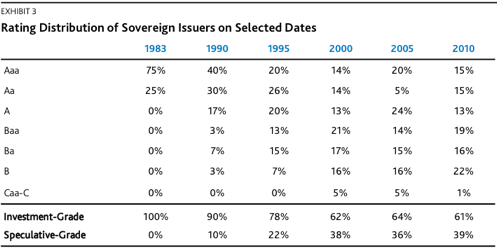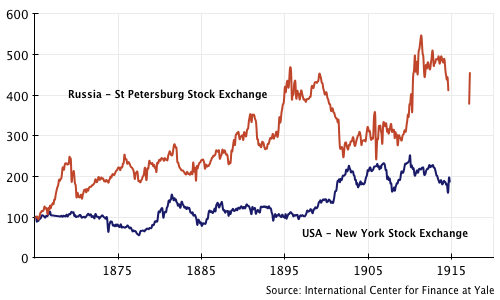Alea posted a striking table on the changing creditworthiness of sovereign bonds from the recent Moody’s report Sovereign Default and Recovery Rates, 1983-2010 [PDF, not Moodys.com because the site demands you register]. Over the last ~25 years, the number of sovereigns rated below investment grade has gone from zero to two-fifths of the total.
It reminded me of a Standard & Poor’s report from a few years ago, A 25-Year March to Junk, which found US corporate bonds going from 28% non-investment grade in 1992 to 49% non-investment grade in 49%. So at first glance, it looks like sovereign creditworthiness has deteriorated even further.

